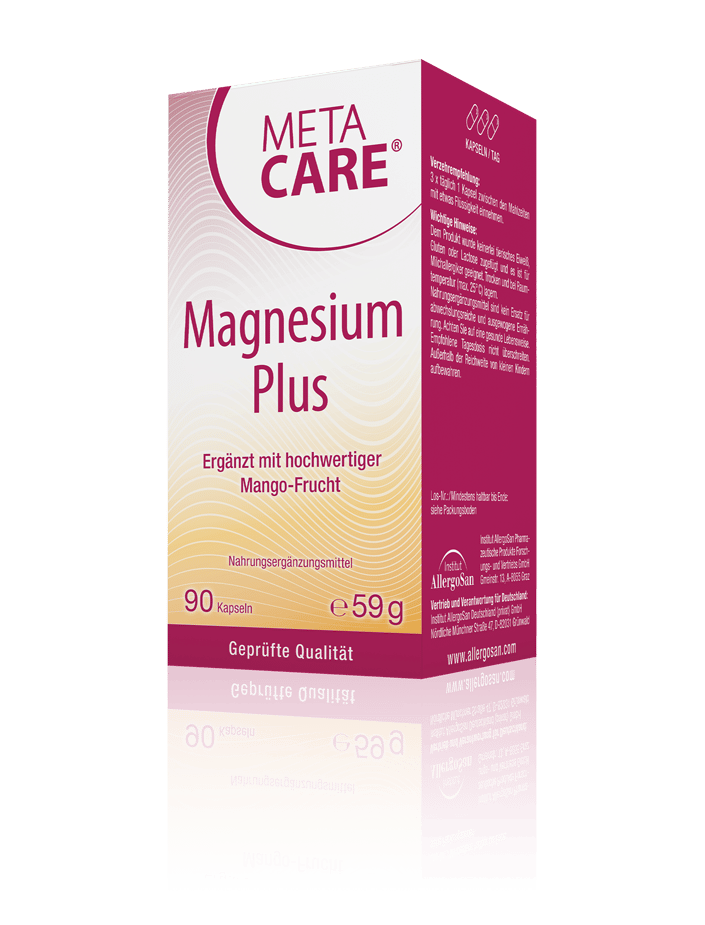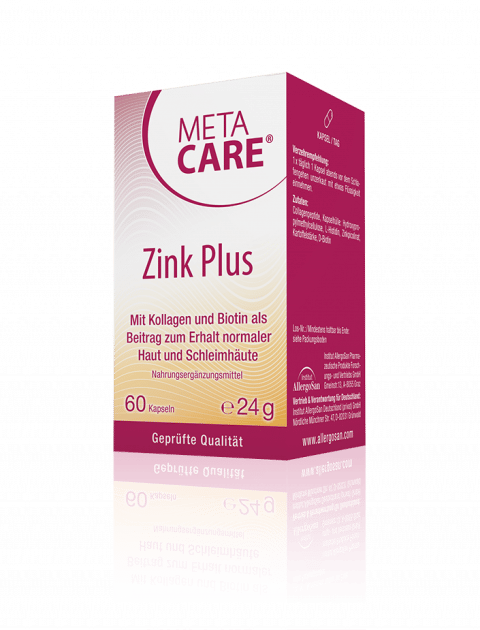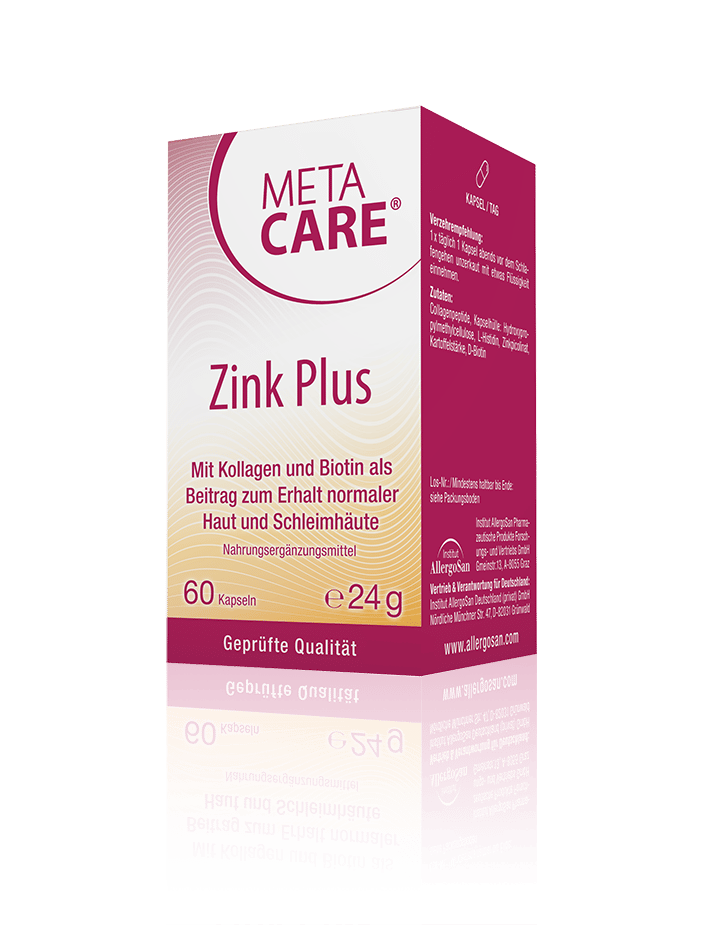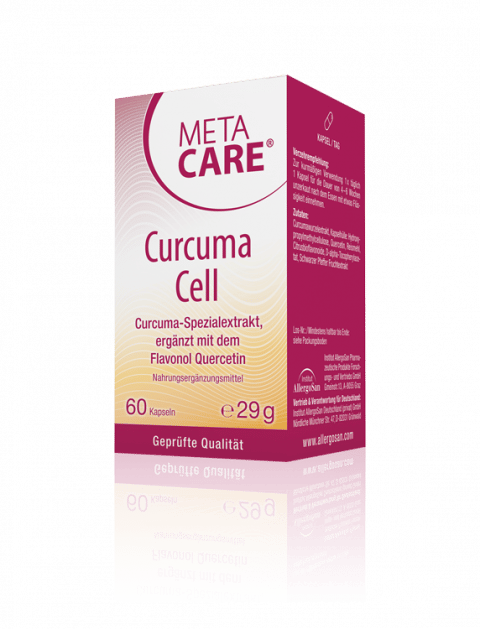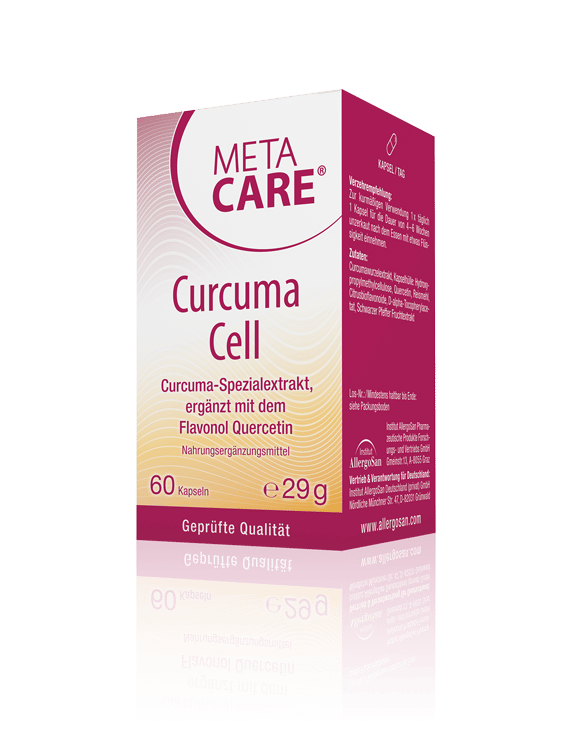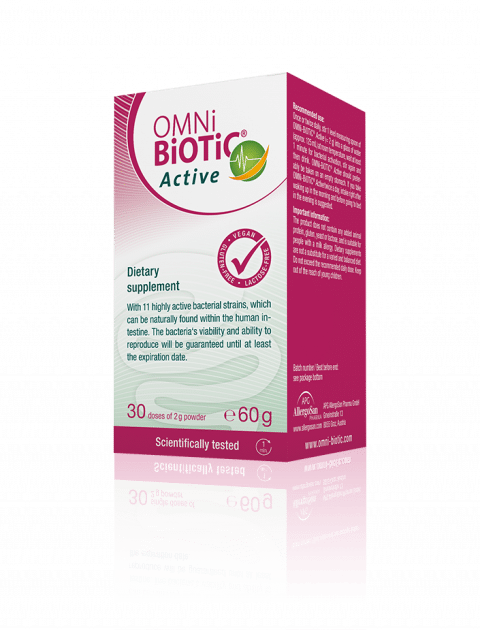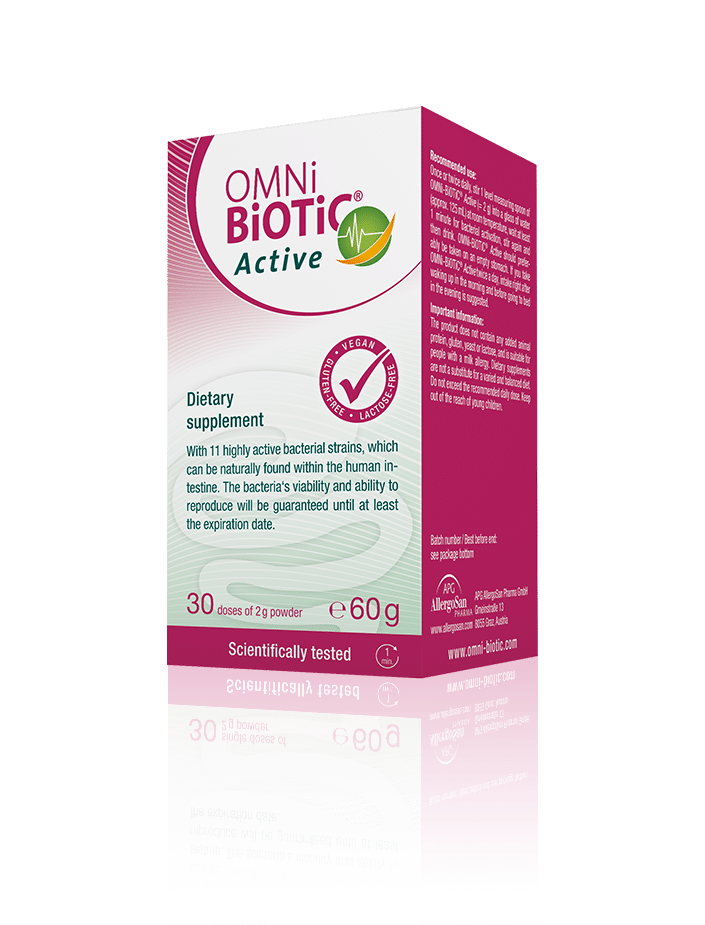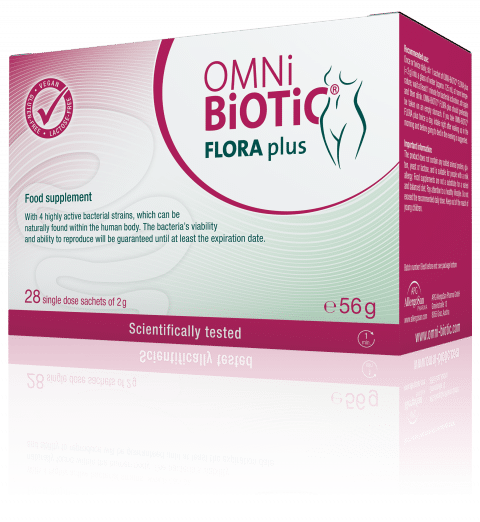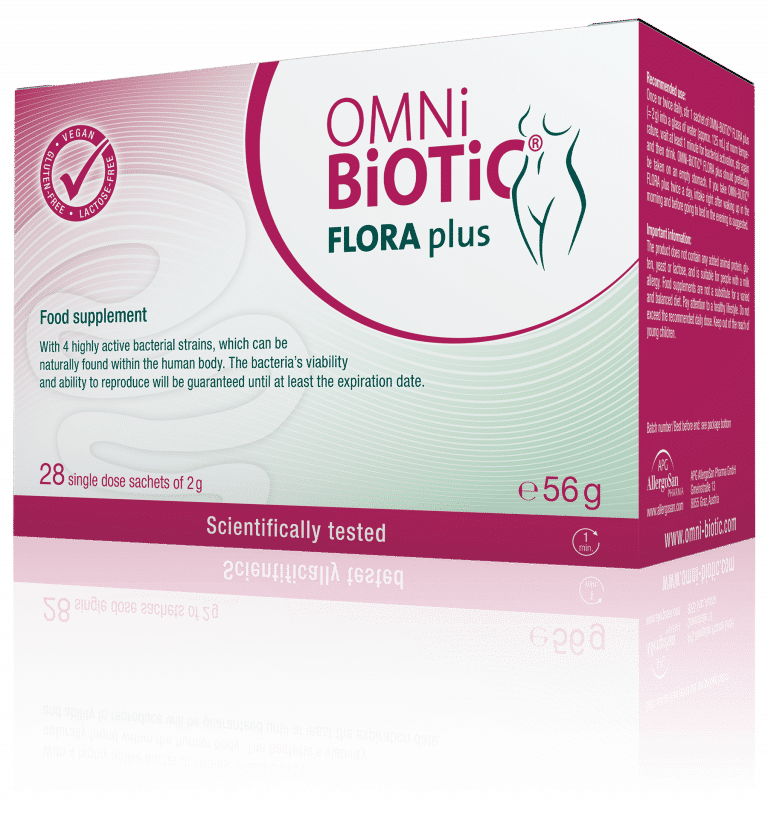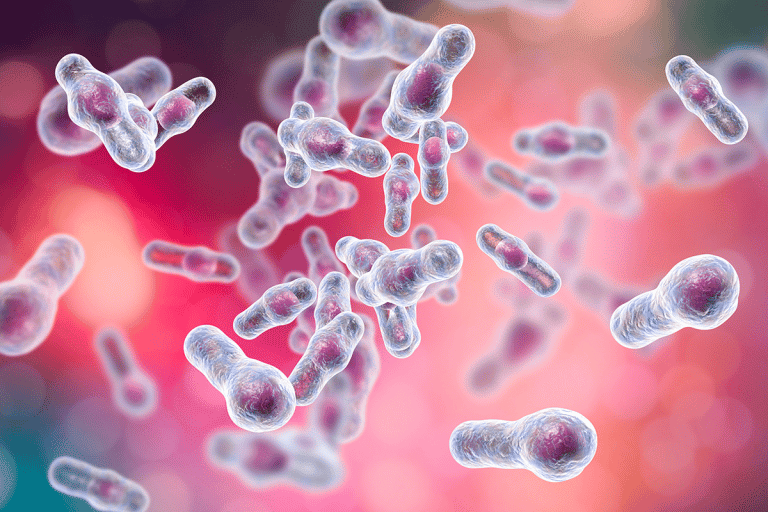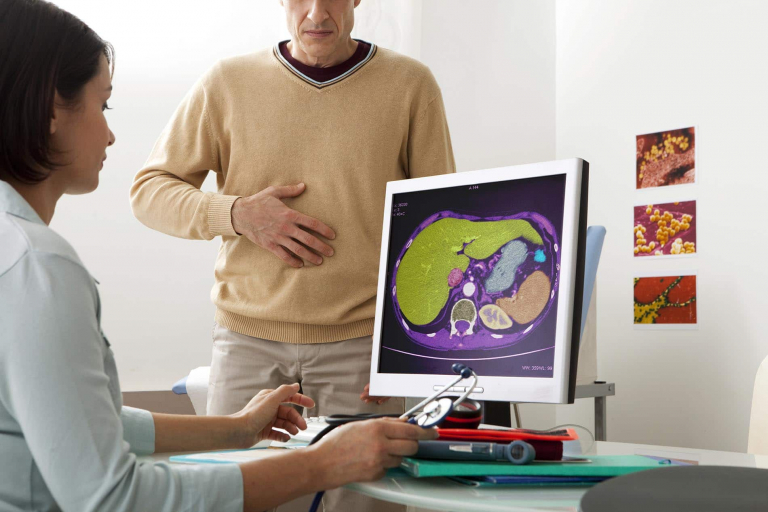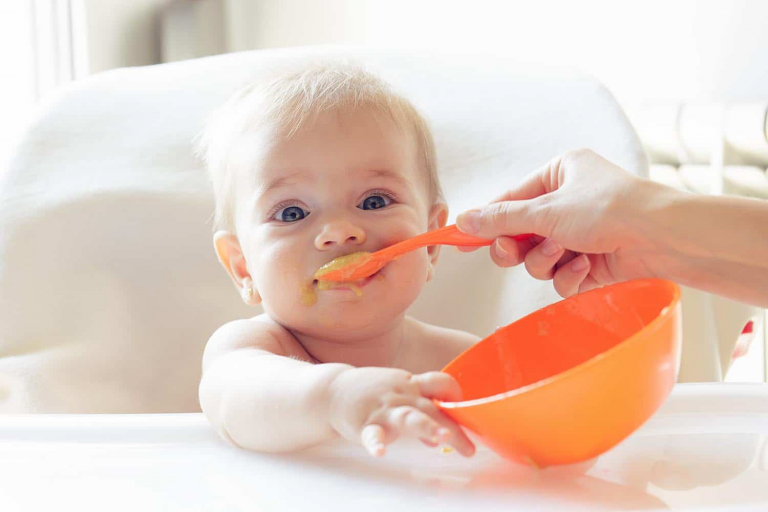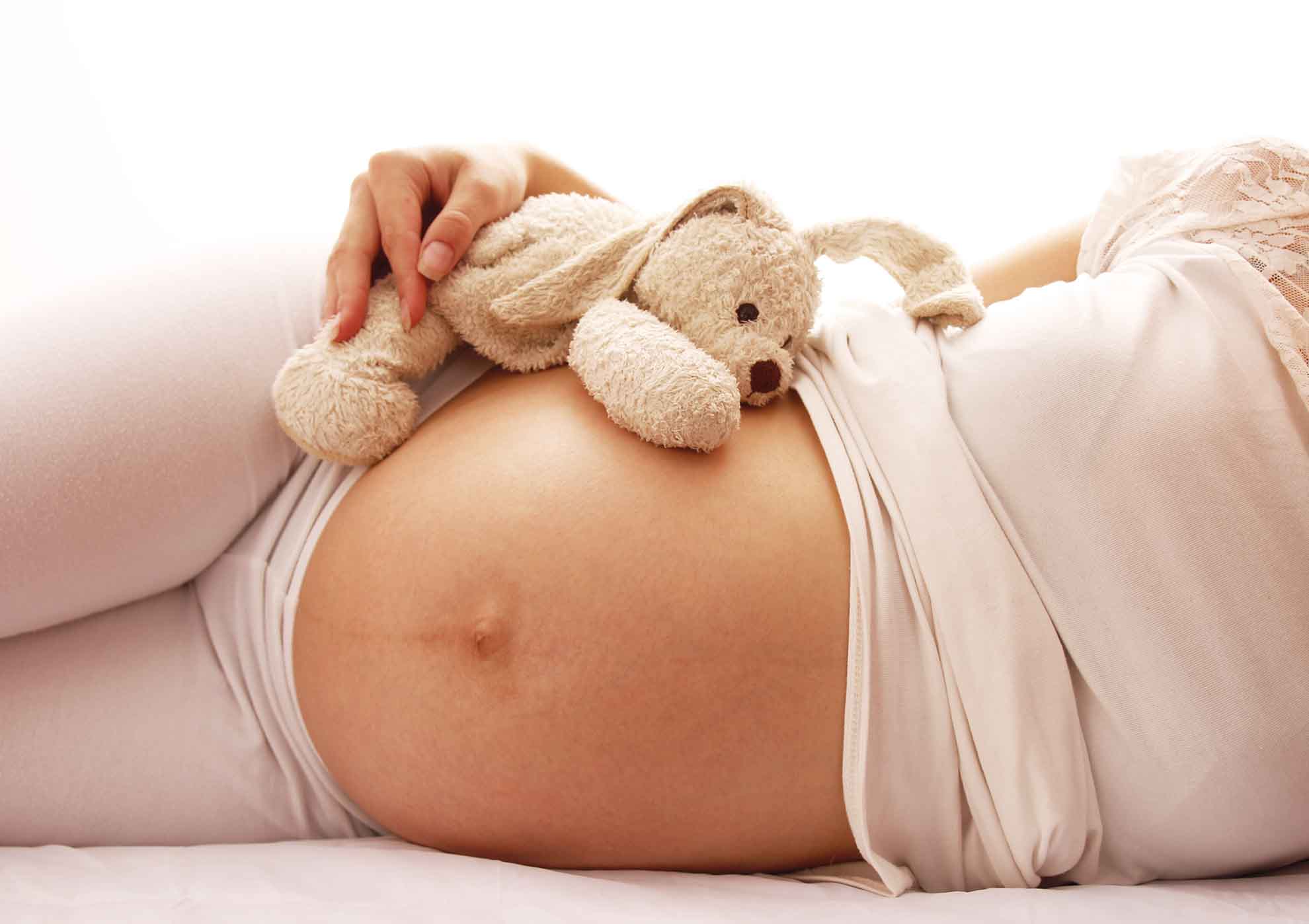
Pregnancy and Breastfeeding
Creating the best conditions for the baby
Pregnancy is a wonderful experience. However, pregnancy puts an enormous strain on the body and soul of the expectant and later also the breastfeeding mother.
Especially in modern times, when the nutrient content of our food is enormously reduced by industrially produced food, acid rain falls on our soil, and fruit and vegetables are harvested unripe, before embarking on excessively long transport routes, it is important to ensure that all cells are adequately supplied with all they need.
Especially during pregnancy, expectant mothers need more nutrients to nourish and protect themselves and the baby. However, the use of good supplements alone is not enough! The basic prerequisite for the absorption of vitamins and trace elements is a healthy gut. Only when the gut is functioning properly does a pregnant woman and her baby have the very best prerequisites for a healthy start into a new phase of life!

Diet during Pregnancy
Nutrition during pregnancy or during a baby’s first year of life has a lasting influence on the child's intestinal flora and therefore also on the occurrence of allergies. In 4000-year-old writings by Ayurvedic scholars, the gut is described as the centre of life. This is of particular importance when expecting a baby. After all, what mother and father would not want to do everything possible as early as possible to enable their child to live a healthy life. The first way to achieve this is through a healthy gut.
With billions of healthy helpers, otherwise known as probiotic bacteria, the intestine controls most of the metabolic processes in our body. It produces vitamins, enzymes, and amino acids that we need for the functioning of all organs and neutralises everything harmful that enters our body with our food. Especially during pregnancy and when your baby begins to explore the environment (often with their mouth too!), this is particularly important.
The healthy bacteria form an extremely powerful protective barrier on our intestinal wall so that only helpful substances enter the blood; everything else is fought off as quickly as possible. You can provide this protection from the first day of life.

A good start for mother and child
In newborns, the bacterial colonisation of the intestine begins immediately after birth. The mother's eating habits, the method of delivery, the use of antibiotics during birth or in hospital, or even the child's diet determines whether the intestine is colonised with the right - i.e., healthy - intestinal bacteria or whether fungi, such as Candida albicans, gain a foothold and put the infant's defences to the test.
If babies are breastfed, the proportion of lactococci and bifidus bacteria increases relatively quickly, which not only ensures a tight intestinal mucosa barrier against harmful substances but above all ensures that sufficient defence cells are formed. The intestinal flora in the first twelve months still differs significantly from that in adulthood, but its development is reflected in later life. This means that if the intestinal flora in the first year of life is predominantly positive, the child will have a stable defence system later in life.
The last months of pregnancy are also particularly important, especially if the mother or father of the unborn child has allergies or is asthmatic. Here there is a risk that the foetus develops these conditions too. This has been proven several times in studies over the last 10 years.
„Giving children antibiotics increases the risk of chronic bowel disease and hypersensitive reactions.“
Probiotics for Babies
A newborn baby receives important immune defence related substances through its mother's milk. A study now shows that its immune system becomes even better if the mother takes probiotics. It can even prevent obesity later on in life.
Breast milk is by no means a sterile product, as was previously assumed. On the contrary, it is full of health-promoting microorganisms. In studies, various strains of bacteria have been detected in the "juice of life". According to research, these tiny creatures play an essential role: they not only colonise the baby's digestive tract but also contribute to the maturation of its immune system. In the last days of pregnancy and when breastfeeding, some of the bacteria from the mother's gut enter the mammary glands via the monocytes of the digestive tract (via a group of white blood cells, i.e., the human immune defence army). The child therefore not only absorbs the mother's antibodies via breast milk, but also her good gut bacteria. It seems reasonable to conclude that a targeted enrichment of the maternal gut flora with bifidobacteria and lactococci could not only have a positive effect on the pregnant or breastfeeding woman herself, but also on her baby.

Protection against mammary gland inflammation
Unfortunately, not every mother has an optimal bacterial colonisation in their gut. If there is an imbalance or an excess of harmful bacteria in the mother's intestine, then inflammation of the mammary glands (mastitis) can develop. Many women have to stop breastfeeding because of this disease, partly because the bacteria that cause the inflammation are also passed on to the baby. The disease, which is often painful, is treated with antibiotics, localised treatment, or prolactin inhibitors. The administration of probiotics during the breastfeeding period could, on the one hand, prevent mastitis by balancing the intestinal flora and, on the other hand, also prevent or at least limit the transmission of harmful pathogens to the baby via the mammary glands.
Probiotics to Protect Mother and Child
Multi-species probiotics are available without a prescription and are a sensible way to protect both the pregnant woman and later mother, as well as her baby during the breastfeeding period, from inflammatory processes and the transmission of unwanted germs. The products contain bifidobacteria and lactococci. These resemble the beneficial bacterial colonisation of breast milk and promote the immunological balance between so-called Th1 and Th2 cells. Th1 cells regulate inflammatory processes in the body and are responsible, among other things, for the defence against pathogens. Th2 cells help both form B lymphocytes, which in turn are important to produce antibodies.

Breast milk protects from the start
If the mother's intestinal flora and therefore the breast milk is "enriched" with health-promoting bacteria, it has a protective effect on the breastfed child - this is scientifically proven. The risk of obesity decreases, the maturation of the child's immune system is promoted and the probability of illnesses, especially infections and allergies, is reduced. Breastfeeding - with or without fortification - also has a positive effect on the baby's brain development. Last but not least, it contributes to the bonding between mother and baby, because during the breastfeeding process, mother and child release oxytocin - the hormone that creates trust and security.
Allergies in Childhood
What factors favour the development of allergies in childhood? How can parents reduce the risk of their children falling ill? And: How does a pollen allergy actually develop?
Allergies of the respiratory tract are steadily increasing in children and adolescents. Hereditary predisposition plays an important role in the development of hay fever, which is not only annoying but also enormously stressful. If one or even both parents suffer from an allergy, then the child is also very likely to be affected. Babies who are born by caesarean section and therefore also do not come into contact with the mother's intestinal flora are also more at risk.

